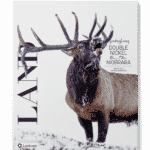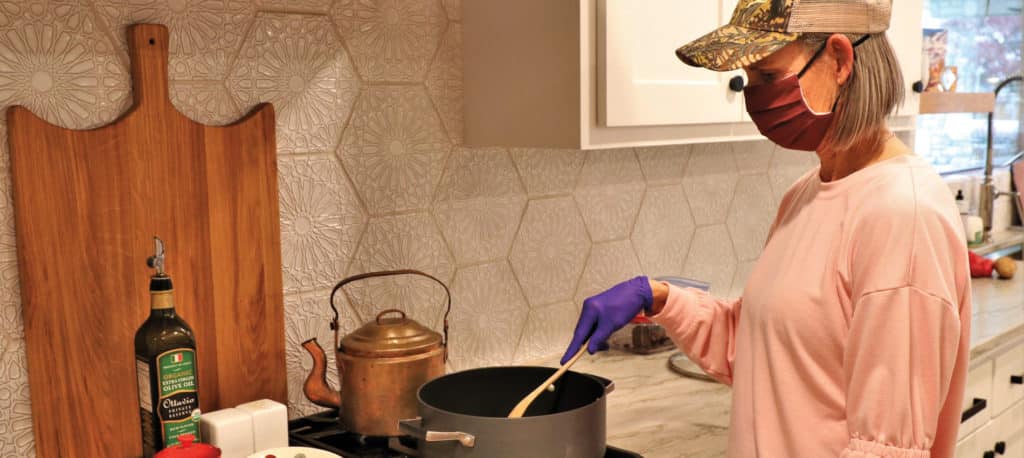
This article is featured in the Winter 2020 issue of LAND magazine. Click here to find out more.
When COVID-19 showed up in earnest last March here in the U.S., who would have envisioned that our world would still be so encumbered by this dreadful virus? About the time that it seemed as though our society was beginning to move in a direction of getting back to our normal daily routines and practices, prevalence rates of COVID-19 spiked in many areas of the country, reminding us that it’s still too early to let our guard down regarding safety measures that address disease transmission. For those business proprietors who are running hunting, fishing and other nature-based operations with lodging, there are several steps you can take to help mitigate concerns associated with COVID-19. The basics that are listed below are NOT intended to serve as a bullet-proof list of safety measures that can be implemented, but these suggestions may help guide you in a direction that mitigates some amount of risk.
Sit It Out
It should be a no-brainer that anyone who has been exposed to someone who has tested positive, or anyone who is symptomatic, should not participate in the excursion. This goes for clients and support staff. Consider notifying your clients prior to their trip what your expectations are of them, as well as what they may expect regarding protocols that you have in camp. You might also require that they sign a disclosure form, like the document found through the Centers for Disease Control and Prevention (CDC), such as the CDC COVID-19 Screening questionnaire. Requiring that everyone have their temperature taken when they arrive at the lodge is becoming a more common practice, and this can possibly allow people to head-off possible problems at the pass before people in camp begin interacting.
Handshakes, Hugs and Social Distancing
Though it is counter to our American customs, foregoing handshakes and hugs should be the norm for now. Replacing these practices with fist or elbows bumps allow you to still show affection during your normal hellos, goodbyes or during celebratory occasions. Similarly, social distancing should be practiced as much as is possible while in camp, in vehicles and even in hunting blinds when possible. Scattering out during mealtime should be considered, even if that means some people dining in the bedrooms, outdoors and/or locations that prevent crowding.
Wipe Down Surfaces
As I tell our camp staff, “Wipe everything down like there is no tomorrow.” Using a disinfectant, wipe down all surfaces where people are likely to make contact. High-use locations such as dining room tables, countertops, doorknobs, bathroom surfaces and inside vehicles are all locations that should be wiped down regularly, perhaps three times daily. Consider using an aromatic cleaning solution so that your clients can sense that these locations are clean and fresh.
Handwashing and Hand-Sanitizing
Encourage everyone, including clients and staff, to regularly wash hands. Make sure that hand-sanitizing containers are visibly present in every room and encourage everyone to use them. Always have plenty of extra supplies.
Mask-Up
No other safety measure has stirred more controversy than facemasks. In some states, in some public settings, masks are mandatory, but in other locations they are optional. Consider requiring clients and staff to wear masks in common areas, while giving them the option to forego wearing them in other settings. Have a box of throw-away masks on-hand for everyone’s convenience. Remind everyone to either cough or sneeze into the crook of their elbow or to walk outside of the room if they feel the need to cough or sneeze.
Food Service
From my perspective, there should be particular attention paid to applying risk-management protocols in the kitchen and dining areas, as activities associated with meals are the most central to the entire group. Should a buffet-style arrangement be in-place, consider requiring that everyone hand-sanitize at the front of the line and that everyone be masked while serving themselves. Another option is for the chef to be masked-up and to serve everyone’s plate for them. The chef should wear throw-away gloves throughout the meal prep, during the serving period and during the clean-up process. Have everyone drop their serving ware into a bucket with hot water that contains a disinfectant and consider doing the same with plates and bowls. You may also want to utilize some paper and plastic ware to minimize the amount of cross-handling of items. To reduce cross-handling of items even more, consider having condiments provided in throw-away containers. And, as previously mentioned, encourage groups to scatter out instead of having a large group dining at the same table.
Have a Plan and Use Your Head
Importantly, it is paramount that your entire support team have a good understanding of the game plan. Personally, I prefer providing some degree of latitude on what our internal protocols look like, but I largely expect for our entire team to be on the same page, marching in-step with confidence and elimination of confusion or uncertainty. It is important that your clients and your support team have a degree of comfort in knowing that everyone’s health is the number one priority and that there is structure in-place that helps ensure everyone’s well-being. And never forget that the strongest safety tool is your brain, so use it wisely.
As business owners, it important that we work within reasonable parameters that allow us to continue to maintain a viable business, while also incorporating some safety features that allow us all to do our part at trying to beat COVID-19. Markets are currently elevated for the hunting, fishing and outdoor recreation industries, so we now have a great opportunity to prove our abilities to accommodate these whetted appetites and for proprietors to work through these trying times with favorable outcomes.

